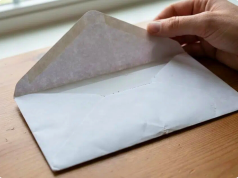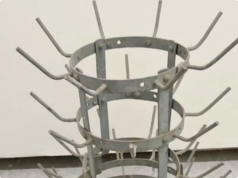Losing a loved one is one of the most profound experiences we face in life. In the days following a funeral, families are often overwhelmed — not just by grief, but by the practical tasks of cleaning out homes, sorting belongings, and “moving forward.”
In that emotional whirlwind, it’s easy to make decisions we may later regret.
We throw things away not because they’re worthless — but because we’re hurting, exhausted, and trying to make sense of a world without someone we loved.
But some things, once gone, can never be replaced.
These aren’t just objects — they’re threads of memory, echoes of voices, and pieces of family history that connect us across generations.
Before you clean, sort, or donate — pause.
Here are four things you should never throw away after a loved one’s passing — no matter how small or insignificant they may seem.
1. Handwritten Notes or Letters
In a world of texts and emails, a handwritten note is a rare treasure.
That grocery list they scribbled on the fridge.
The birthday card tucked in a drawer.
The love letter from decades ago.
Even a short “Thinking of you” note on a napkin.
These aren’t just paper — they’re proof they were here.
Their handwriting, their choice of words, the way they dotted their i’s — it’s all a part of them.
💬 One day, you’ll pull out that note and suddenly feel like they’re right beside you.
✅ What to do:
Collect all handwritten items — letters, cards, journal entries, even sticky notes — and store them in a memory box or scrapbook.
2. Voice Recordings or Voicemails
You’ll never realize how much you miss someone’s voice until it’s gone.
That short voicemail —
“Hey, it’s me. Just checking in. Call me back when you can.”
Or the voice note they sent:
“Happy birthday, sweetheart. I love you.”
Even a recording of them laughing during a family call.
These moments are living memories.
Their tone, their cadence, the way they said your name — it’s all irreplaceable.
🎧 One day, when the pain is softer and you just want to “hear” them again, that voicemail will be a lifeline.
✅ What to do:
- Save voicemails — transfer them to your computer or cloud storage
- Record any old home videos or voice memos
- Use apps to convert audio to MP3 for long-term preservation
Don’t wait.
Technology fails. Phones get replaced.
Save it now.
3. Items That Were Always “Theirs”
Some objects become sacred not because of their value, but because of their belonging.
- Their favorite coffee mug with the chipped handle
- The worn-out slippers they never wanted to throw away
- Their reading glasses folded on the nightstand
- The fishing hat, walking cane, or knitting needles they used daily
These aren’t clutter.
They’re tangible connections to the person’s presence.
Even if you can’t keep everything, choose one or two meaningful items to preserve.
Let them live on a shelf, in a memory box, or as part of a tribute display.
🕯️ One day, your child or grandchild will hold that mug and say, “This was Grandpa’s.” And in that moment, they’ll feel closer to someone they never got to meet.
4. Family Photos — Especially the Unlabeled Ones
In the rush to organize, people often toss old photo albums or boxes of “unfamiliar faces.”
But those unlabeled photos?
They’re time capsules.
That black-and-white image of a woman in a 1940s dress?
She might be your great-grandmother.
The man in the military uniform?
A great-uncle who fought in the war.
The children playing on a porch?
Your parents as kids — in a house long gone.
Even if you don’t recognize the people, don’t throw them out.
✅ What to do:
- Gather all photos, even the unknown ones
- Ask older relatives to help identify faces and dates
- Scan them and create a digital archive
- Label each photo as you learn the story
These images are pieces of your family’s story — and once lost, they’re gone forever.
Grief Is Not a Clean-Up Job
It’s natural to want to “tidy up” after a loss.
But grief isn’t about erasing the past — it’s about carrying love forward.
Every note, every voice, every photo, every well-worn object —
they’re not reminders of absence.
They’re proof of presence.
And one day, when the sharp pain has softened,
you’ll open that box and say:
“There they are.”
And for a moment — they’ll be with you again.
Final Thoughts: Keep the Pieces That Matter
In the days after a funeral, when the world feels heavy and silent,
remember this:
👉 It’s okay to keep things.
👉 It’s okay to grieve slowly.
👉 It’s okay to hold on.
Because healing doesn’t mean forgetting.
It means honoring what was — and preserving it for those who come after.
So before you throw anything away…
Ask yourself:
“Will I regret losing this one day?”
If the answer is yes —
keep it.
Some things aren’t meant to be let go.
They’re meant to be passed down.






